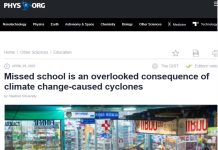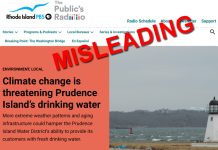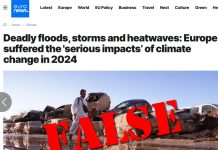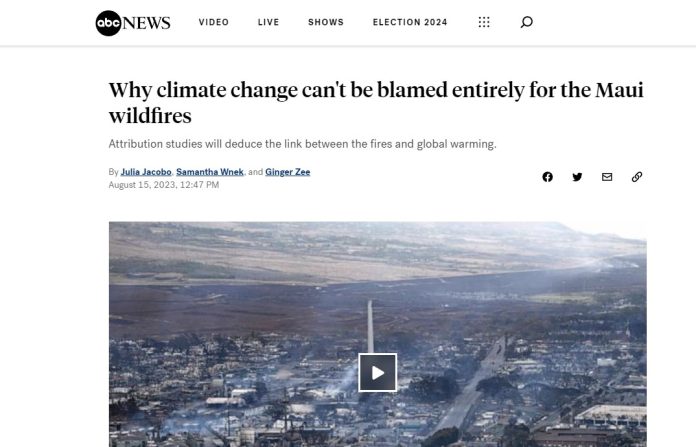As has become a far too common knee jerk reaction as natural disasters occur, mainstream media outlets, like Bloomberg and the Los Angeles Times, for example, were quick to blame climate change for the Maui wildfire and its horrific consequences. They were wrong, and for once, perhaps because of the sobering death toll, the mainstream media has begun to backtrack and acknowledge the myriad other factors are actually responsible for the scope of the Maui fires and the loss of life, homes, and businesses it has caused.
A confluence of weather events and human error resulted in the tragedy that is the Maui fire.
As a scientist told ABC News in climate change toned-down story, “Why climate change can’t be blamed entirely for the Maui wildfires,” “We should not look to the Maui wildfires as a poster child of the link to climate change,” Daniel Swain, a climate scientist at the University of California, Los Angeles, said Friday in a YouTube stream.”
The Hawaiian Islands have wet and dry seasons, and it is currently the dry season on Maui, and Lahaina, the city suffering the brunt of the wildfire’s wrath, sits on the naturally drier side of the island due to the prevailing trade winds.
“The dry season begins in May, if not earlier. Rain virtually stops in June and July and temperatures rise, making it the most popular time for visitors,” wrote DW in its responsible story, “What caused Hawaii’s devastating wildfires?” “August and September can be particularly hot, ….”
Among the factors that allowed Maui’s wildfire to grow so quickly was an abundance of fuel. This dry season followed a wet spring, which resulted in verdant growth of an invasive grass on the mountain slopes and valleys abutting Lahaina. Almost every story covering the wildfires mentions that after years of agricultural use, the land on the slopes was taken over by Guinea grass, a fast growing invasive grass, see, for example, Watts Up With That, Smithsonian Magazine, and the Washington Post.
During the wet season Guinea grass can grow up to 10 cm per day and reach 2 meters in height. Rather than keeping the Guinea grass in check by regular mowing, or better still removing and replacing with fire resistant native grasses and plants, Maui’s government allowed Guinea grass to take over. Abby Frazier, a climatologist at Clark University told ABC News that “[t]he main factor driving the fires involved the invasive grasses that cover huge parts of Hawaii, which are extremely flammable.”
Then there was Hurricane Dora, a category four storm that had recently passed Hawaii, delivering strong winds of up to 62 miles per hour that drove the fires, once started, down the slopes with amazing speed.
Hot dry conditions, check. A large load of dry fuel, check. High winds, check. Now you just need an ignition source.
I don’t think they’ve determined what sparked the fire, whether arson, carelessness on someone’s part or whether it was natural, say a lightning strike, but something sparked it. That accounts for the formation of the fire and its ferocity, but not the human tragedy, the death toll.
That is also all on Maui’s government. The New York Times and the Wall Street Journal both detailed the fact that fire officials and the island’s electric utility had warned for more than a decade that the island was at extreme risk of wildfires due to fuel build up, the naturally arid environment during the dry season, and high winds—the very confluence of conditions responsible for the still ongoing wildfires on Maui. As the Wall Street Journal reported:
Nearly a decade before a wildfire destroyed the coastal Maui town of Lahaina this week, killing at least 89 people, a report by Hawaiian fire researchers warned that the area was at extremely high risk of burning.
Another report, in 2020, tied fires to winds from a passing hurricane—similar to the ones that fanned the Lahaina blaze.
Even with all this, the Hawaiian government had established an extensive network of sirens across the island to warn people in case of an emergency, but the local government didn’t sound the alarm.
Yet local authorities said in the aftermath of this week’s devastation that though they knew wildfires were becoming more frequent in Hawaii, they weren’t prepared for one to roar through Lahaina.
The question is why weren’t they prepared? In addition, one might reasonably ask, why didn’t they trigger the warning sirens?
Some reporters and science pundits’ claims to the contrary, climate change was not a significant factor in Maui’s tragedy. The modest background warming did not cause the present dryness — Maui is in its historic dry season, nor did it cause poor land management, nor did it spark the fire, nor did it cause the winds from a hurricane, nor, perhaps most importantly, did it cause the government to fail to anticipate and prepare to fight such fires or decide not to set off the island-wide alarm system of horns to warn people once the fires started.
In short, ecologist Jim Steele was right when he wrote, “The Maui fire would have devastated Lahaina in a colder or warmer climate. It would have devastated Lahaina in high or low CO2 concentrations.”
How many lives might have been saved if the government had cleared or removed the grasses and replaced them with native plants or had the government followed the recommendations of its own fire authorities and treated wildfires as a major risk, certainly a more immediate one than climate change, and had it sounded the extensive alarm network it had established allowing people time to escape. No one knows, but it is certainly a greater number than the zero lives it would have saved had it banned using fossil fuels for transportation and energy.



















You’re praising ABC News despite the fact they ceded to social justice warriors and stealth-edited their headline from, “Why climate change can’t be blamed for the Maui wildfires” to “Why climate change can’t be blamed entirely for the Maui wildfires.” https://www.foxnews.com/media/abc-news-changes-headline-amid-backlash-saying-climate-change-cant-be-blamed-maui-wildfires
This isn’t bravery. This is cowardice. And much of the MSM is desperately trying to link the fires to climate change. Someone already published an e-book doing just that! It was print-ready and just waiting for a catastrophic event to fill in the blanks. You can read more here: https://justthenews.com/politics-policy/environment/attempts-link-maui-fires-climate-change-obstructed-downed-power-lines